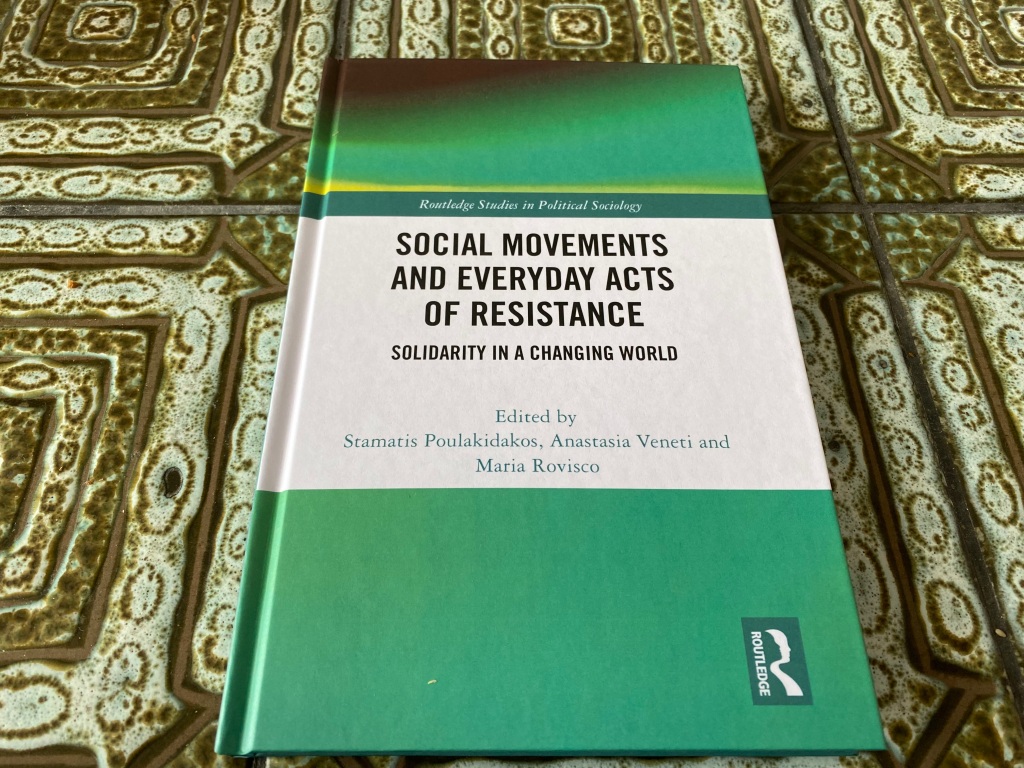
Last week I received my copy of Social Movements and Everyday Acts of Resistance, a fantastic new book co-edited by Stamatis Poulakidakos, Anastasia Veneti, and Maria Rovisco.
Ceri Ashwell and I have a chapter in the book based on our work on the Mary Beard Twitterstorm (see here for an article we previously published in Information, Communication & Society).

The title and abstract for the chapter are below:
Resisting (everyday) racism on social media: Analysing responses to the 2018 Mary Beard Twitter-storm
Big tech companies like Twitter have often been accused of not doing enough to address online hate speech. The algorithms and designs of social media have facilitated new forms of platformed racism in countries such as Australia and the United Kingdom (UK). While they undoubtedly amplify cyber hate, these online platforms also constitute important spaces in which people of colour (PoC), and their allies, can challenge colorblind racism and white privilege within contemporary societies. This chapter uses the 2018 Mary Beard Twitterstorm to explore how Twitter is used by activists to both highlight and counteract these tropes. The Cambridge scholar was heavily criticised by anti-racist activists for a tweet which appeared to condone the sexual misconduct of Oxfam aid workers in Haiti following an earthquake in January 2010. Her reference to the difficulty of ‘sustaining civilised values’ in the disaster zone was considered prima facie evidence of her whiteness and privilege. Researchers of colour, such as Beard’s Cambridge colleague Dr. Priya Gopal used the tweet to reflect on the ‘casual racism’ they experienced working in UK Higher Education institutions. These acts of resistance towards racial inequality and injustice within the academy led to Gopal herself being subject to much abuse and trolling from Beard’s supporters. This paper sets out to explore whether these acts of resistance can facilitate informal learning about issues pertaining to white privilege and frailty in countries such as the UK. It does so by reviewing the literature on social media and whiteness, providing background on the Mary Beard Twitterstorm, and presenting the results of a qualitative content analysis of 1718 unique tweets containing ‘Mary Beard’, posted between 16 and 20 February 2018. Results indicate that there were nearly twice as many tweets criticising the Cambridge scholar for perpetuating white privilege and frailty than defending her tweet. While many of these tweets were agonistic rather than antagonistic in nature, there was little sign that those talking about the controversy on the site were reflecting on their own white privilege. The burden of talking about these issues fell on the few PoC in the study, who were invariably singled out for abuse by Beard’s supporters. Nevertheless, this study demonstrates the crucial role of opinion leaders such as Gopal in leading difficult conversations about racism and whiteness online.
Many thanks to Stamatis, Anastasia and Maria for the invitation to participate and their hard work in pulling together such a great book on social movements and activism.
The book can be ordered here. If you would like a preprint copy of our chapter then please contact me (paul.reilly@glasgow.ac.uk).








